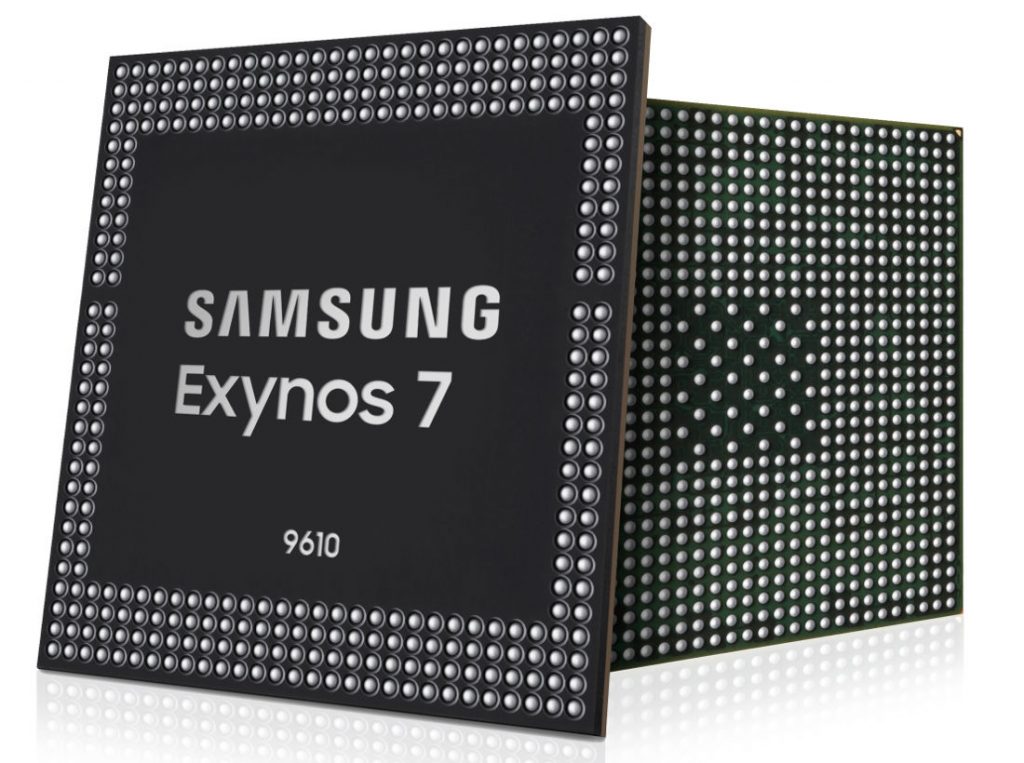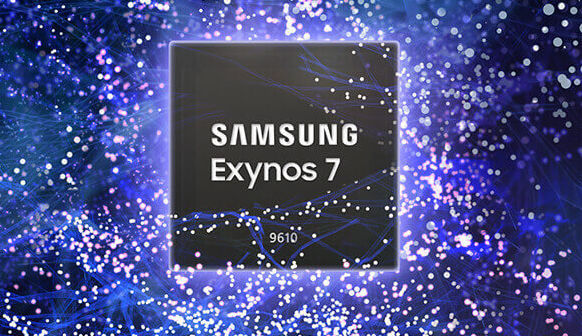 Samsung today introduced Exynos 7 Series 9610 processor, successor of Exynos 7885 that powers the latest Galaxy A8 and A8+. It is based on the 10-nanometer (nm) FinFET process technology, and has eight-core CPU with four of Cortex-A73 CPU cores along with other four Cortex-A53 cores. It also supports slow motion video recording at 480 frames per second (fps), and has AI features such as vision image processing unit based on a deep-learning technology and image processing with a neural network engine for more intelligently enhanced face detection, as well as single camera out-focusing and augmented low-light images.
Samsung today introduced Exynos 7 Series 9610 processor, successor of Exynos 7885 that powers the latest Galaxy A8 and A8+. It is based on the 10-nanometer (nm) FinFET process technology, and has eight-core CPU with four of Cortex-A73 CPU cores along with other four Cortex-A53 cores. It also supports slow motion video recording at 480 frames per second (fps), and has AI features such as vision image processing unit based on a deep-learning technology and image processing with a neural network engine for more intelligently enhanced face detection, as well as single camera out-focusing and augmented low-light images.

It also has advanced face detection feature that enables the camera to recognize faces that are either not facing forward or partially covered with objects like hair or a hat. With smart depth sensing, bokeh or out-focused portraits can be taken with a single camera. Through cleverly merging multiple frames, vision and image processing enhances the signal-to-noise ratio (SNR) and brightness that can improve pictures taken in low-light environments.
Highlights of Samsung Exynos 9 Series 9610 SoC
- Based on the 10-nanometer (nm) FinFET process technology
- Octa-Core CPU with 4x 2.3 GHz Cortex-A73 cores and 4x 1.6GHz Cortex-A53 cores
- ARM Mali-G72 MP3 GPU
- UFS 2.1, eMMC 5.1, LPDDR4x RAM
- Advanced ISP and MFC with improved performance by 1.6 times and more-than-doubled mobile industry processor interface (MIPI) speed
- Rear Camera 24MP, Front 24MP, Dual Camera 16+16MP
- 480fps slow-motion in full HD
- 4K UHD 120fps encoding and decoding with HEVC(H.265), H.264, VP9
- Display Up to WQXGA (2560×1600)
- LTE Cat.112 3CA 600Mbps (DL) / Cat.13 2CA 150Mbps (UL)
- Modem supports 802.11ac 2×2 MIMO (Multiple-Input, Multiple-Output) Wi-Fi, Bluetooth 5, and FM for radio, 4-mode Global Navigation Satellite System (GNSS) receiver that includes GPS (Global Positioning System), GLONASS, BeiDou and Galileo
- Embedded Cortex-M4F-based low-power sensor hub, which efficiently manages the sensors in real-time without waking the main processor for Always-on sensing applications
The Exynos 7 Series 9610 is expected to enter mass production in the second half of 2018.
